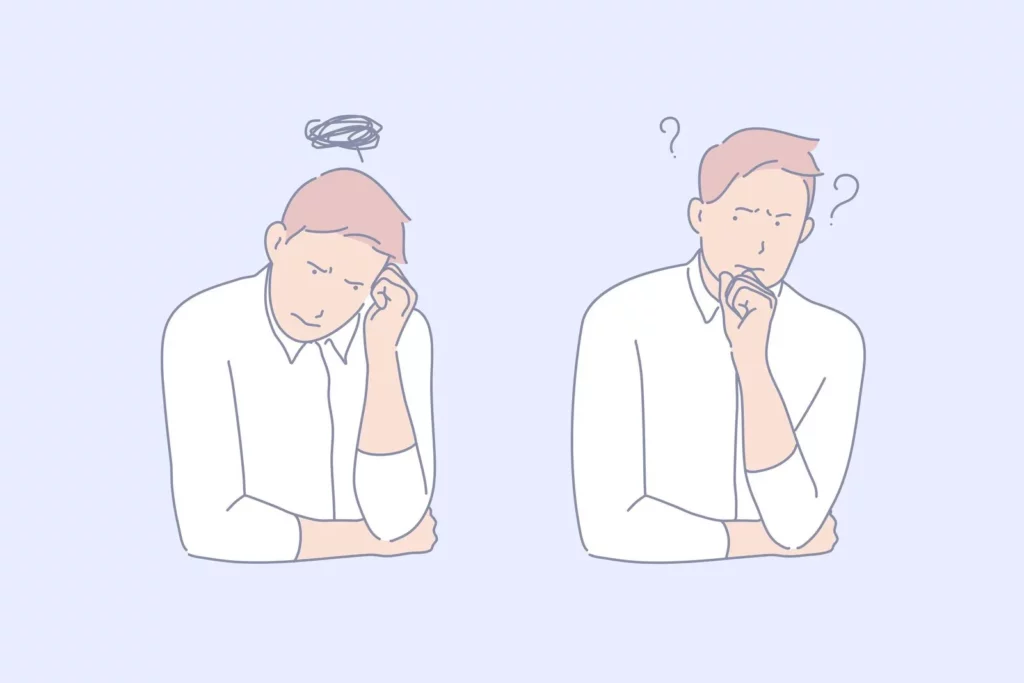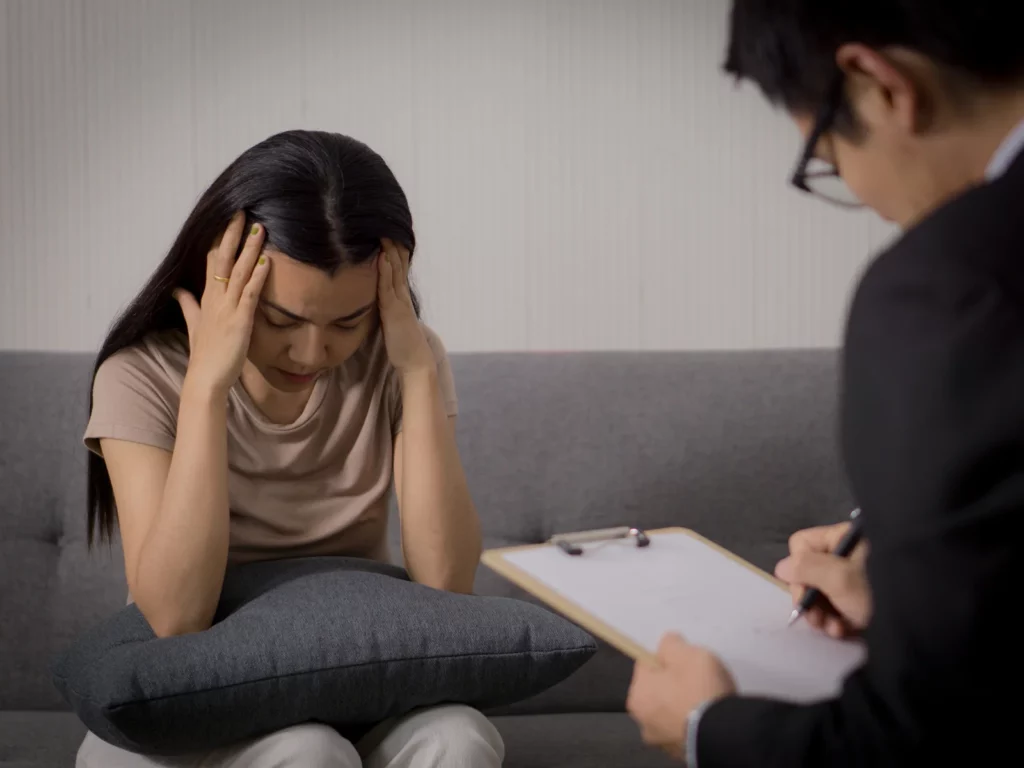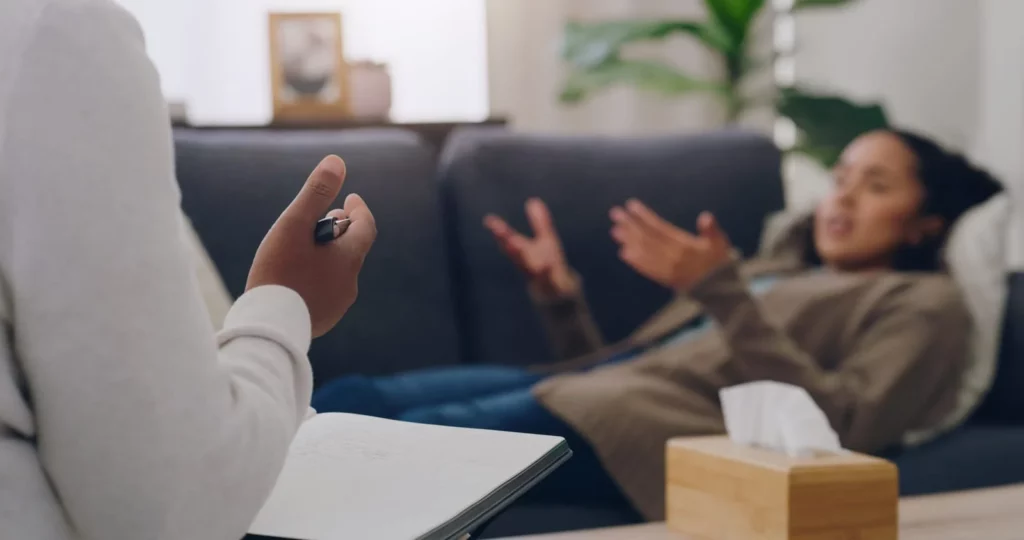Announcement
This article will help to demystify and elucidate the distinctions between Bipolar Disorder and Depression, providing clarity on their differences and overlaps and guiding individuals towards a better understanding and seeking appropriate care.
Many people struggling with symptoms of hopelessness, fatigue, and insomnia ask, “Is bipolar depression the same as bipolar disorder?” or “Do I have bipolar disorder?” or even “Am I bipolar or depressed?”
Understanding the difference between bipolar and depression can help you make an informed decision about treatment and symptom management.
Depression vs. Bipolar Disorder
- Bipolar disorder impacts 3% of the population, usually starting between ages 20 and 30. Most people experience manic episodes, but 60% of people experience manic, followed by depressive episodes.
- New research indicates that a new high of 29% of American adults over the age of 12 have depression, and 17.8% are currently being treated for it.

Bipolar Disorder
Bipolar disorder is a mental health condition where individuals experience severe mood swings that can last for several weeks or months, and they are divided into two episodes:
- Manic
- Depressive
Symptoms of each can interfere significantly with daily function, performance at work or school, and interpersonal relationships.
Major Depressive Disorder
Major depressive disorder is a mental health condition where an individual struggles with signs and symptoms of depression that can interfere with daily function.
Depression vs. Bipolar Depressive Episode: Signs and Symptoms
The signs and symptoms of major depressive disorder and the depressive episode of bipolar disorder look very similar and can include the following:
- Feelings of hopelessness
- Fixating on past mistakes
- An inability to focus on the present
- Pulling away from family
- No longer valuing life
- Feeling as though you don’t deserve love, friends, or family
- Avoiding personal responsibilities
- Having angry outbursts
- Irritability
- No longer participating in hobbies
- No sex drive
- Hypersomnia or insomnia
- Low appetite or high appetite
- Lack of hygiene
Is bipolar depression the same as bipolar disorder?
The symptoms experienced during a bipolar depressive episode can be the same as the symptoms someone experiences with a major depressive episode.
40% of people with bipolar disorder are originally misdiagnosed, usually with major depressive disorder.
There are several reasons for this:
- The biggest is that symptoms can be exactly the same but only as they apply to a depressive episode.
- Moreover, people struggling with bipolar disorder are less likely to seek help during a manic episode when they have high energy as compared to a depressive episode.
- Finally, women with bipolar disorder are more likely to experience depressive episodes over manic episodes especially compared to male counterparts which can easily lead to a misdiagnosis of depression, a disorder that also affects women more than men.
Difference Between Bipolar and Depression: Causes
There is a strong genetic risk factor that leads to the development of bipolar disorder. If you have a family member, especially a parent, with bipolar disorder, you are at a higher risk of developing it yourself.
There’s also a strong link between exposure to emotional trauma and family conflict in childhood. Those who experience abuse or traumatic events in childhood are more likely to develop bipolar disorder compared to their counterparts.
For major depressive disorder, if you have a family history, you are more likely to develop it yourself, especially if you are a woman. And much the same as with bipolar disorder. If you are exposed to trauma, especially early in life, it can lead to depression. This can take the form of discrimination, extreme poverty, violence in your home, or neglect in childhood, which causes:
- Changes to resting adrenaline levels
- Unstable emotions
- Anxiety
- Depression
However, adults can also develop major depressive disorder as a result of brain injuries, environment, or even hormonal changes like those experienced during childbirth.

Treatment for Depression vs. Bipolar Disorder
Treatment for bipolar or depression is relatively similar:
Therapy
For depression:
- Cognitive behavioral therapy can help people modify their automatic negative thoughts and emotional responses to any environmental stimuli or psychological distress and replace them with positive ones.
- Psychotherapy can provide a chance to talk about things in childhood that may have contributed to the development of depression or things in adulthood, work through trauma, and learn to identify individual triggers, adjust to your emotional state, and cope with symptoms.
- Behavioral therapy can help change harmful behaviors brought about by depressive symptoms into healthy alternatives.
For bipolar disorder:
- Psychotherapy can help discuss personal emotions and experiences associated with the condition.
- Family therapy can help individuals communicate more effectively with their family members and resolve any conflict arising from the condition.
- CBT and psychoeducation can provide critical details about bipolar disorder, how it works, how to identify signs of upcoming manic or depressive episodes, and how to control symptoms
- Support groups can provide a place where other people with the same condition can discuss previous failures, and success stories and support one another.
Medication
For depression:
- SSRIs can help with general symptoms.
- Antidepressants can also help.
- Antipsychotics might be prescribed to reduce specific symptoms.
- Anxiolytics can help with sleep and tension relief.
For bipolar disorder:
- Mood stabilizers like lithium can help control manic episodes.
- SSRIs can help with depressive episodes.
- Antipsychotics can help reduce specific symptoms.
- Anticonvulsants can relieve pain.
However, despite many of the therapies being similar, it’s still important to get the correct diagnosis so that you can work with a qualified professional who is an expert in your condition, as well as the right type of medication and dosage and the appropriate support groups.

Getting a Diagnosis of Bipolar or Depression
Is bipolar depression the same as bipolar disorder? No, but it does carry some risks of misdiagnosis.
People with bipolar disorder who experience acute stress or a traumatic life event are more likely to experience increased symptoms, particularly depressive episodes.
For example:
Linda always goes through periods where she has a lot of high energy. She’s kind of quirky and energetic, always interrupting other people and unable to stay focused on a task. She starts a lot of projects but never finishes them, and she gets irritable.
All of these periods started when she was in college, so she figured it was because of the stress or her odd sleeping patterns.
But after college, when she had her children and was dealing with the financial strain of starting a family and juggling a new job, she started dealing with severe symptoms of depression.
In the case of Linda, it’s very likely that she wouldn’t seek help in college for her manic episodes because she wouldn’t recognize them for what they were. However, the acute stress could trigger a relapse in her depressive episodes, at this point, she might get help and potentially receive a misdiagnosis.
For this reason and several more, it’s important that you consult with a mental health professional and receive a diagnosis from someone qualified rather than trying to self-diagnose. This will ensure that you get the right assessment and treatment recommendation.
Summing Up
With depression vs. bipolar disorder, there is a risk of very similar symptoms during the depressive episodes of bipolar disorder but not during the manic episodes. Because of this crossover, there’s a high risk of misdiagnosis, especially if you don’t get a professional consultation from a mental health provider.
Symptoms of bipolar disorder can be managed throughout your lifetime, and major depressive disorder can potentially be treated. It’s important that you reach out for help if you notice symptoms in yourself or someone else.